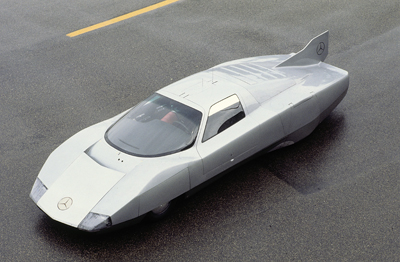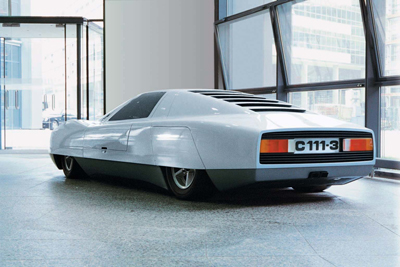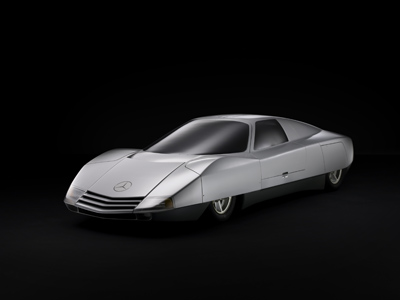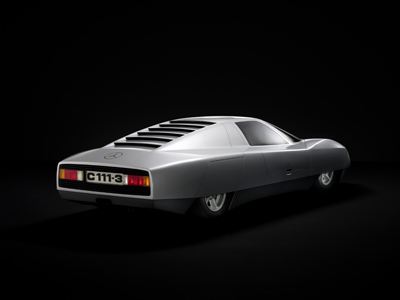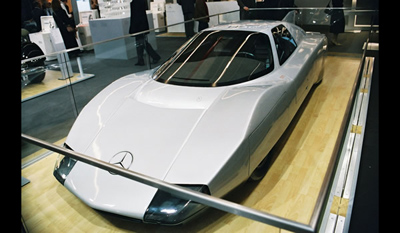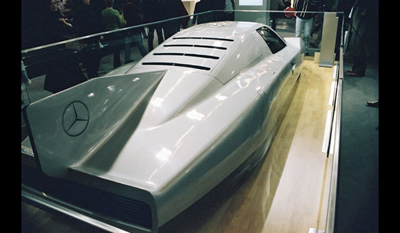Mercedes C111 Record Vehicule 1979
In the fall of 1973, a boycott of the oil-producing countries brought about the so called oil crisis and crude oil, hitherto an inexpensive commodity, became a precious resource. Developers were requested to come up with new engines which, more than anything else, used the expensive fuel sparingly. The most obvious proposition was the low consumption diesel engine but the compression ignition unit was still thought to be sluggish and noisy. There had certainly been examples of either vice in automotive history but the diesel engine had long since been developed into a refined power unit, perfectly capable of driving sporty passengers cars. Mercedes Benz decided to disprove the old prejudice and converted the C111 research vehicule program to Diesel engine demonstration. The C111 II previously employed in the now cancelled Wankel rotary engine program was converted to diesel propulsion by installing a three liter diesel with five cylinders for the first tests. The engine developed 190 hp thanks to turbocharging and intercooling, as opposed tp 80 hp output of the production engine. In June 1976, the now called C111 IID reached spectacular speeds on the test track at Nardo in Italy. In the course of 60 hours, four drivers established a total of 13 world records for diesel engined cars, in particular an average speed of 252 kph was recorded . The success of the sparsely modified C111 II spurred the developers on to new heights. It was decided to design a car for the sole purpose of establishing speed records, the C111 III. The new car was built in 1977; it was narrower, had a longer wheelbase and perfect aerodynamic properties thanks to complete streamlining and rear air foils. The engine was tuned to 230 hp. At Nardo again, the car reached over 300 kph. Nine new absolute world records were recorded with a near production three liters diesel engine. The world records established by the diesel engined C111-III are 100 km at 316,484 kph, 100 miles at 319,835 kph, 500 km at 321,860 kph, 500 miles at 320,788 kph, 1000 km at 318,308 kph, 1000 miles 319,091 kph, 1 hour at 321,843 kph, 6 hours at 317,976 kph and 12 hours at 314,463 kph. At the end of the day, the engine in the record car had consumed ju_st under 16 liters per 100 km, another outstanding record given the average speed of over 300 kph.
The C111, however, was still to take the final evolutionary step towards becoming an all out racing machine. The last version, the C111-IV was introduced in 1979 and broke the track record by reaching a speed of 403,978 kph. This time, it was no longer a diesel engine but a 4,5 liters V8 gasoline engine with an output of 500 hp. The shape of the bodywork was equally a far cry from the first version. Mercedes C111 Record Vehicule 1979 Wallpapers 1280x1024
|
||||||||||||||||
|---|---|---|---|---|---|---|---|---|---|---|---|---|---|---|---|---|
|
||||||||||||||








